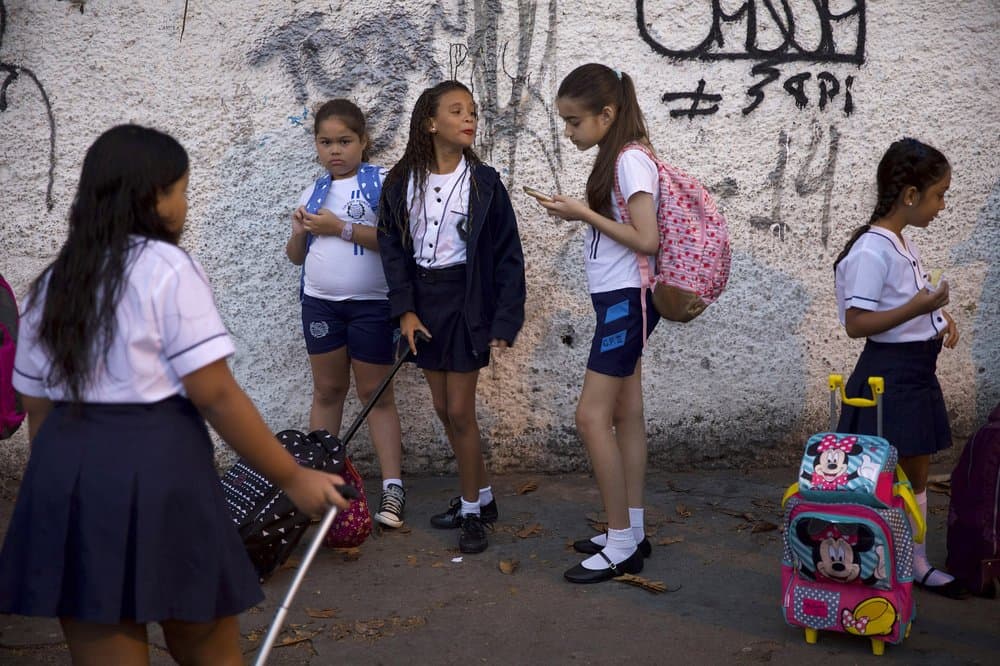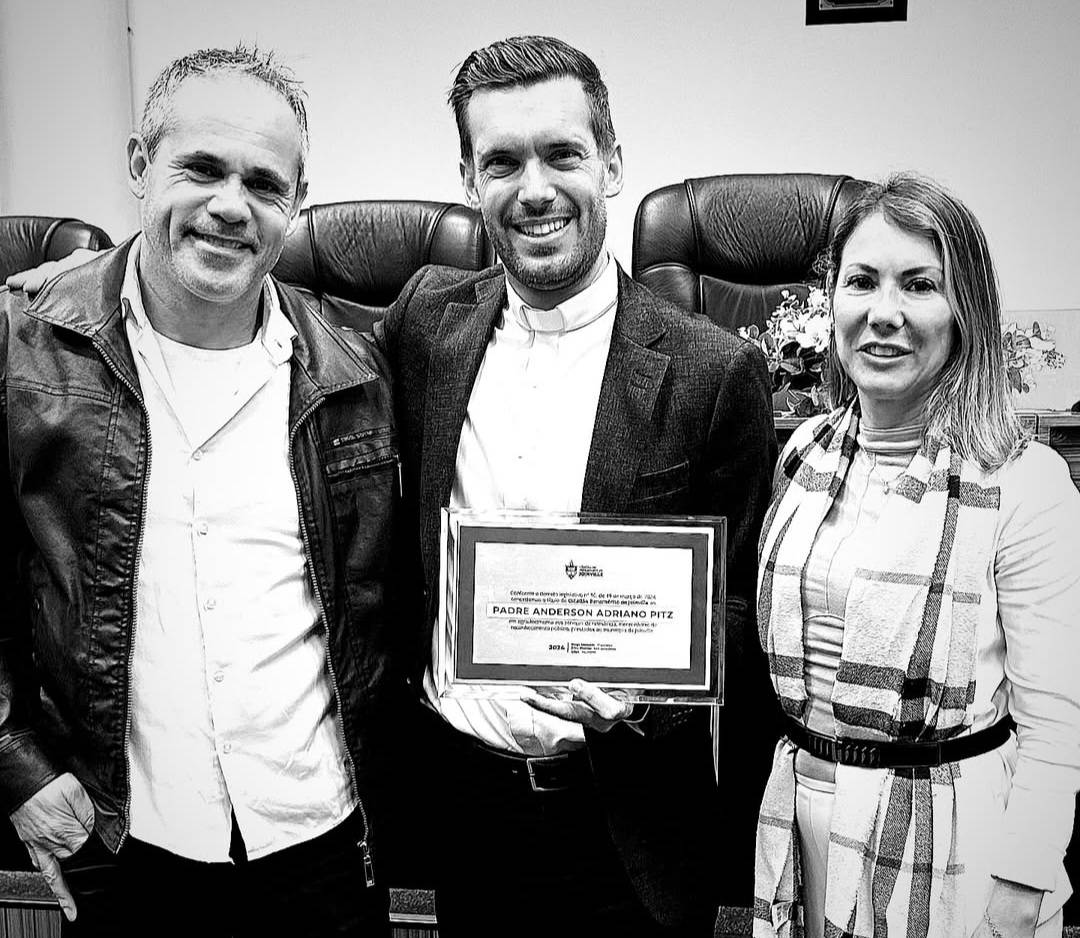SÃO PAULO, Brazil – Catholic schools in Brazil are urging a cautious approach to reopening despite the financial shortfall the continued lockdown is causing.
In-person classes have been suspended across Brazil since March and educational went on-line, forcing schools to quickly adapt their teaching methods to the new model.
Even though private schools were given the opportunity of adhering to a governmental program which allows them to reduce their employees’ working hours and salaries, the financial impact of the COVID-19 crisis has been huge. Teachers have been kept on at full pay, since they’re working their regular hours on-line, while revenues have been affected by a much higher default rate.
According to the private schools’ association of São Paulo State, the default rate in tuition payments was 21.34 percent in May – in the same month of 2019, it was only 8.41 percent. The financial problem is made worse by the fact more students qualify for tuition discounts due to family job losses and salary cuts.
Many for-profit private schools are clashing with state governments over their reopening plans. In São Paulo State, governor João Dória Jr. announced his tentative plan for resuming educational activities – both in the private and in the public systems – on September 8, implementing the reopening in phases: Initially only 35 percent of the students would attend physical classes, with the rest continuing to study online.
Dória’s plan was severely criticized by the local private schools’ association, which said they’re ready to reopen now, and should not be penalized by the public-school system’s inefficiency.
However, the Catholic sector hasn’t joined in the criticism of the government plans.
“Despite our financial difficulties, we can’t think that way. We’re fully committed to all students’ protection and education. We’re not profit-oriented,” said Ascânio Sedrez, educational director of the Cabrini sisters’ Boni Consilii School, in São Paulo, and a local member of the National Association of Catholic Education (ANEC).
ANEC represents 1,100 Catholic schools in Brazil, totaling 2.7 million students. Most of them are officially recognized as philanthropic institutions, which means that at least 20 percent of their students don’t pay any fee.
According to Father Roberto Duarte, ANEC’s financial director, most Catholic schools are financially sustainable and have some margin to face the current crisis. “But there are very small schools that may not be able to hold out,” he told Crux.
Duarte said that the Catholic institutions lost more students in kindergartens and in the first years of primary school. “That’s also where more discounts were given. Many families are in severe difficulties right now,” he said.
The Marist Group, which has 42 schools in the South and Southeast of Brazil, offered a general discount of 30 percent for students at that age level.
“We’ve also offered 20 percent and 10 percent tuition cuts for students at higher school grades,” explained Brother Vanderlei Siqueira dos Santos, executive-director of basic education at the Marist Group.
Dos Santos said that the Marists were in the middle of an expansion process which had to be suspended, so the group’s reserves can be employed during the crisis. “We’ve been redirecting resources from more financially successful schools to the ones in deficit,” he added.
The group has 7,500 low-income students in 22 tuition-free schools and offer scholarships of up to 100 percent to part of the 27,500 students in regular institutions.
“We’re handing over print educational materials for low-income students who can’t access the internet. They’re also receiving food kits,” Dos Santos add. The default rate grew only 2 percent in June in comparison with the previous year in the Marists’ schools.
Sedrez said that since the beginning of the pandemic in March, ANEC has supported the implementation of broad social distancing measures, despite President Jair Bolsonaro’s opposition.
“One of ANEC’s letters to its associates had a reminder that we who follow a Master who defended life and life in abundance can’t be guided by any different value,” he told Crux.
Bolsonaro has attempted to minimize the seriousness of the disease and has always opposed a federally imposed quarantine. Many of his supporters have been criticizing the adoption of social distancing and other anti-pandemic measures, so COVID-19 has become highly politicized in Brazil.
According to Sister Cláudia Chesini, one of ANEC’s national coordinators, most Catholic schools have been able to avoid that kind of conflict with their students’ families.
“The intransigent defense of life by the National Conference of Bishops of Brazil and by Pope Francis helped us to take up our vision with more confidence,” she told Crux. She said that most parents are worried about the reopening of schools before a vaccine is available.
The switchover from in-person education to an on-line model required extra spending and much work.
“Most Catholic schools had a reasonable technological infrastructure, but the level of agility in the adaptation process varied,” Sedrez explained.
Boni Consilii school provided special e-mail accounts to every student and family and even developed remote pastoral activities.
“We organized 65 livestreams about spirituality and values over the past four months,” he said. A survey showed that most parents were completely satisfied with the school’s on-line model.
While providing help to provide online learning during the crisis, ANEC hasn’t supported projects being developed by conservative and Evangelical groups in Brazil for homeschooling in Brazil, which is currently illegal.
“The pro-homeschooling groups tend to be very ideological. They were willing to take advantage of the current situation in order to approve their project,” Chesini explained.
According to Sedrez, some sort of hybrid model between at home education and regular schooling can be successfully employed until the pandemic is over, “but we’ll always prioritize the direct relationship between teachers and students.”
















